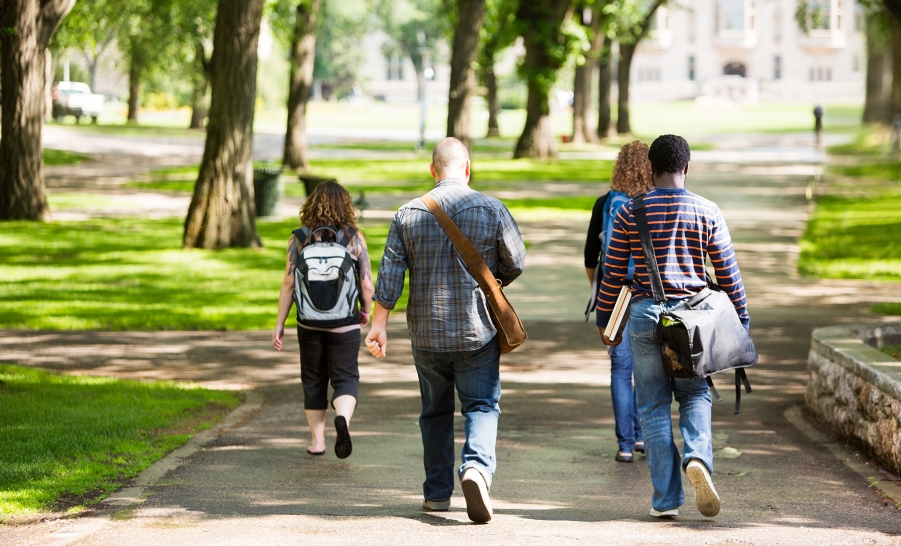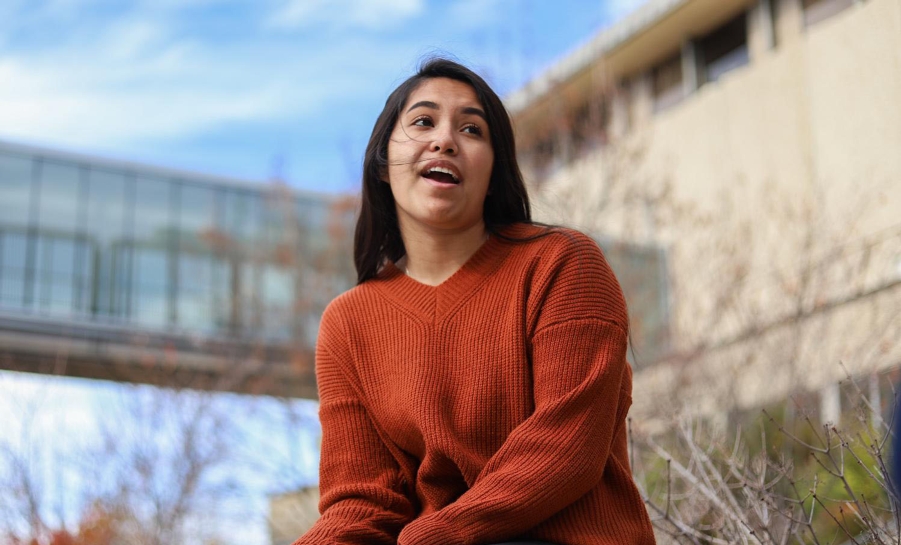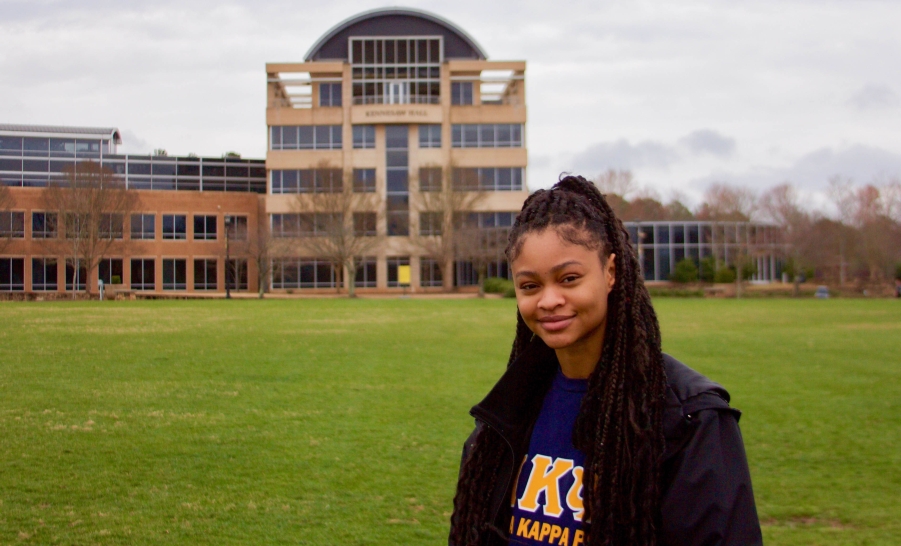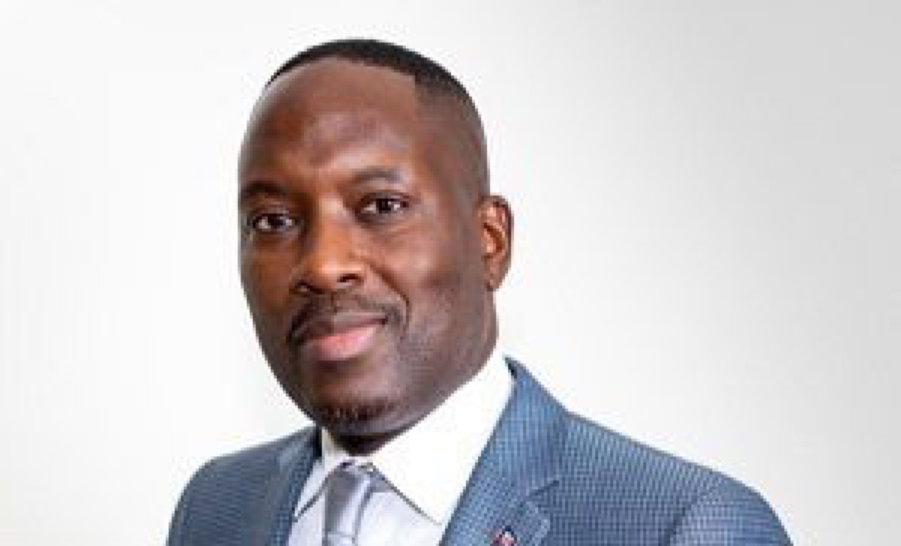First-Generation College Celebration: 50 Ways to Celebrate on November 8!
Sarah E. Whitley Ph.D., Center for First-Generation Student Success / FirstGen Forward / October 12, 2017

The Center for First-generation Student Success, in partnership with the American Association of Colleges & Universities, is a proud supporter of the Council for Opportunity in Education’s (COE) inaugural First-Generation College Celebration! On November 8, 2017 the 52nd Anniversary of the Higher Education Act, institutions around the country are invited to celebrate the presence and experiences of first-generation college students, faculty, and staff on your campuses.
While we hope you will take advantage of this particular day for celebrations, please consider this a charge to begin or expand celebrating first-generation experiences throughout the academic year. To be an active part of First-Generation College Celebration on November * and beyond, please use #CelebrateFirstGen in your social media posts so the festivities can become a national event!
In an effort to spark interest and promote continued interest, the Center has developed a list of ideas to engage on November 8 and throughout the academic year. Feel free to use this list, add your own twist, share with colleagues, and get your students involved in planning! Some suggestions require little to no resources while others may need the creativity and support of campus partners, leaders, and your local community.
Please remember that some first-generation students, faculty, and staff may still be actively navigating this part of their identity. Please obtain permission before highlighting or recognizing individuals publicly.
- 1. Host a campus event or rally featuring notable first-generation alumni, faculty, staff, students. Empower first-generation student leaders to get involved in planning or to emcee the event.
- 2. Host panel discussions or forums featuring first-generation members of your campus community to discuss their college experiences.
- 3. Celebrate the legacy of TRIO programs on your campus. If possible, identify numbers of students served or major milestones.
- 4. Coordinate a positive language campaign to combat the use of deficit language surrounding first-generation college students.
- 5. Incorporate first-generation faculty experiences into classroom discussions.
- 6. Orchestrate listening sessions by administration, faculty, and staff about first-generation students’ experiences and needs on campus.
- 7. Create multimedia materials of first-generation students for use in admissions, orientation, and campus development sessions.
- 8. Interviews with trustees, administrators, and faculty who are first-generation. Consider profiling these individuals in your campus newspaper, websites, or on campus TVs.
- 9. Launch a first-generation student logo development contest to be use for programs, services, and events.
- 10. Distribution first-generation swag to promote your celebration events and continued opportunities. For your celebrations, COE offers t-shirts, sweatshirts, bags, mugs, and stickers in a variety of colors and styles at Teespring.
- 11. Engage local and campus media to cover your celebrations and events. Prepare a short set of talking points to distribute so accurate and appropriate information regarding first-generation students is shared.
- 12. Host a breakfast, luncheon, or snack break for first-generation students to celebrate their success. Invite first-generation leaders, faculty, and staff to attend. Partner with campus offices, bookstores, local eateries, and gas stations to add gift card raffles to your celebration events.
- 13. Ask your university president or member of the leadership to send a public statement support first-generation student success.
- 14. Launch a lecture series for the university community to understand recent media and scholarship surrounding first-generation student success. Start by identifying faculty or staff on your campus who may have scholarship in this area!
- 15. Kick off a brown bag lecture series for faculty to discuss topics related to classroom experiences for first-generation students and offer approaches for improvement.
- 16. Not sure who on your campus is first-generation? Use your celebrations as a way for faculty and staff to identify as first-gen and get them signed up to support first-gen students in some way!
- 17. Highlight the contributions of first-generation students to your campus community. Think about campus leaders, those contributing through service hours, academic achievement, recent award winners, student-athletes.
- 18. Create an infographic highlighting facts specific to first-generation students on your campus to post in academic and student spaces and online.
- 19. Host first-generation alumni networking and career development events.
- 20. Offer resume and interview workshops to offer tips on how to best frame first-generation status in the hiring process.
- 21. Host a job recruitment fair featuring companies committed to hiring first-generation college students.
- 22. Curate a “we’re glad you are here” campaign to remind first-generation students of the ways in which they contribute to strengthening your campus community.
- 23. Meet students where they are, literally! Set up stations in commuter student parking areas to offer breakfast-on-the-go or car winterization kits to students just to brighten their day and feel encouraged and encouraged.
- 24. Designate a campus athletics event as “first-generation” and recognize players, coaches, attendees who are first-generation. Offer a discount to attend.
- 25. Profile first-generation students and programs on the university and departmental websites and social media.
- 26. Kick off a campaign to raise funds for first-generation student scholarships or program expansion.
- 27. Announce your commitment to host a graduation ceremony or celebration for first-generation students and their families.
- 28. Send a letter or postcard home to the families of first-generation students to acknowledge the university’s support of their attendance and to highlight successes.
- 29. Ask colleagues to identify how they are considering first-generation students on their programs and services. Offer a “first-gen friendly” designation to reward those doing outstanding work.
- 30. Ask colleagues to perform a “document analysis” of campus publications to see how first-generation students are included and celebrated.
- 31. Partner with campus librarians to curate first-generation book collection. Ideas may include tips on first-generation student success, books with central characters as first-gen students, or authors who are first-gen. Create an online resource!
- 32. Create a visual display of famous or successful first-generation alumni or prominent leaders. Customize for academic spaces (i.e., Michelle Obama, Sonya Sotomayor and Bill Clinton near law or politics spaces, Starbucks CEO Howard Schultz in the business school, Common and Viola Davis in performing arts areas.)
- 33. Create a first-generation “bulletin board in a bag” for resident assistants to post in their communities.
- 34. Create programs that also highlight the intersectional nature of first-generation student experiences. Consider beginning with veterans to coincide with Veteran’s Day.
- 35. Invite student organizations who may already serve a large population of first-generation students through their membership to come together for a campus dialogue. Have each organization select one first-generation member to sit on a collective first-gen task force or committee to identify collaborative opportunities.
- 36. Coordinate letters or emails from your university president to each first-generation student to reinforce their place within your community.
- 37. Create a university first-generation Snapchat filter and ask students to create stories!
- 38. Launch a “Why I’m First” campaign where first-generation students anonymously or openly submit why it was important for them to go to college to be displayed on campus. 39. Announce the creation of awards for “outstanding first-generation college student” and “outstanding campus advocate for first-generation students.”
- 40. Organize a first-generation 5k race to raise funds for student scholarships or programs.
- 41. Garner the support of university food service for a “first-gen fill up” opportunity. Each first-generation student receives a special travel mug good for free or discounted beverages on campus.
- 42. Host a “university dinner” at the beginning of each academic semester and invite all first-generation students to attend. If you don’t already do this on your campus, plan one for November 8!
- 43. Develop a “First-gen Fellows” program where first-generation students can shadow university leadership, faculty, staff, and community members to learn more about a particular career, interest, research opportunity, etc.
- 44. Identify and promote undergraduate research opportunities for first-generation college students.
- 45. Invite first-generation students from local high schools to participate in programming or celebrations. Develop mentoring relationships between first-generation college students and those in local high schools.
- 46. Support students in establishing a first-generation student organization on campus. Identify first-gen faculty/staff to serve as advisors.
- 47. First-gen Friday: offer a weekly engagement opportunity for students. This could be formal programming, a meal or social gathering, or simply a place to hang out.
- 48. Host a letter-writing campaign to remind state legislators, boards of trustees and state higher education agencies of the needs of first-generation college students.
- 49. Train campus ambassadors, tour guides, and orientation staff on how your campus welcomes first gen students.
- 50. Create a programming series for first-generation seniors to begin preparing for life beyond college.
BONUS!
Invite a team of dedicated faculty and staff to form a first-generation student success committee to begin considering current offerings and opportunities for improvement.





